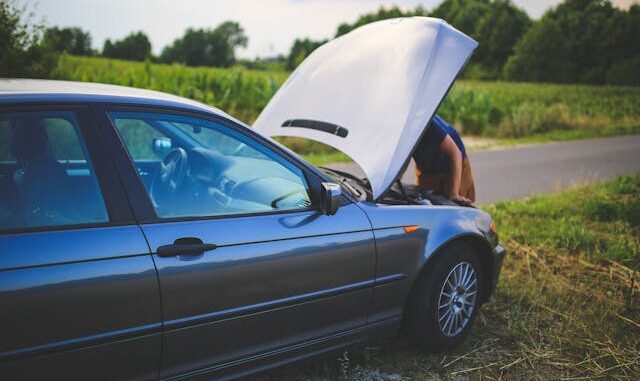
The aftermath of a car accident in Ontario can be chaotic. Between dealing with injuries, insurance claims, and repairs, retrieving your belongings from the damaged vehicle might seem like a secondary concern. However, these personal items can be crucial for daily life, sentimental value, or even legal purposes. Here’s a comprehensive guide to navigate the process of collecting your belongings after a car accident in Ontario.
Safety First: Assessing the Situation
Before rushing to retrieve belongings, prioritize safety:
- Secure the Scene: If the accident is serious or involves injuries, ensure everyone’s safety by waiting for emergency responders to arrive. They can assess the situation and advise on safe access to your vehicle.
- Turn Off Your Car: If you’re able, turn off the engine, engage the parking brake, and turn off all lights. This minimizes electrical hazards and potential fire risks.
- Traffic Safety: If your car is blocking traffic or poses a safety risk, don’t attempt to access it yourself. Wait for tow truck assistance or police instructions.
Initial Steps: What to Do On-Site
Once the scene is deemed safe, you can begin the process of collecting your belongings:
- Inventory Your Belongings: While your car might be damaged, take a mental note or jot down a list of essential items you need to retrieve. This can include wallets, phones, important documents, medication, or irreplaceable valuables.
- Seek Permission: If your car is towed to a collision reporting center or impound lot, you’ll need permission to access it. Contact the towing company or police officer at the scene to understand the process for retrieving your belongings.
Towing and Impound Lots: Retrieving Your Possessions
If your car is towed, here’s what to expect:
- Tow Truck Contact: The towing company that impounded your car will typically provide contact information. Reach out to them to understand the storage fees and access procedures.
- Documentation: Be prepared to show proof of ownership (vehicle registration) and your driver’s license when retrieving your belongings.
- Inventory Verification: Double-check that all your valuables are present upon accessing your car. If anything is missing, report it to the towing company or police immediately.
- Storage Fees: Be prepared to pay any applicable storage fees associated with the impound lot. These fees typically accrue daily.
When Your Car is Repaired:
If your car is being repaired at a body shop:
- Communication is Key: Discuss a convenient time to access your belongings with the body shop staff beforehand.
- Safety Precautions: The body shop might need to take additional safety measures like disconnecting the battery before allowing you to access your car.
- Security Concerns: If extensive repairs are underway, the car might be partially disassembled. Be mindful of this when retrieving your belongings.
Special Considerations: Lost or Damaged Items
- Accident Report: If any of your belongings are missing or damaged due to the accident, ensure they are documented in the police report for insurance claim purposes.
- Insurance Coverage: Depending on your insurance policy, you might have coverage for damaged personal belongings. Contact your insurance company to understand your options.
- Legal Advice: For high-value lost or damaged items, consider consulting a lawyer to explore legal recourse against the at-fault driver’s insurance company.
Tips for a Smooth Retrieval Process
Here are some helpful tips to facilitate a smooth and stress-free retrieval of your belongings:
- Take Photos: If possible, take pictures of the damage to your car and any belongings before they are removed. This can be helpful for insurance claims.
- Document Everything: Keep a record of all interactions with towing companies, body shops, and insurance providers. This includes collecting receipts and keeping copies of relevant documents.
- Stay Calm: Accidents can be stressful, but maintaining a calm and polite demeanor throughout the retrieval process can ensure a smoother experience.
Conclusion
While retrieving your belongings after a car accident might seem like a minor concern, it’s an essential step in resuming your routine. By following these steps, prioritizing safety, and understanding the process, you can ensure a smooth and efficient experience. Remember, if you encounter any issues or have questions, don’t hesitate to reach out to your insurance company or seek legal advice for added support.
